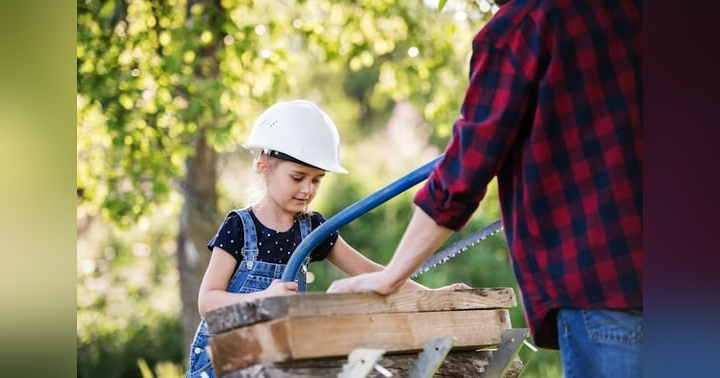How to Help Kids Make Good Choices Without Constant Battles

Have you ever wondered how to help kids make good choices without it turning into an exhausting battle of wills? This post relates to our episode, How to Raise Kids Who Actually WANT to Make Good Decisions, and digs deeper into using natural consequences to build real responsibility—without yelling or power struggles. For more context on our overall approach, see How We Raised 7 Well-Adjusted Kids — Without Yelling, Tantrums, Punishments or Power Struggles. You can guide with love and clarity—and still let your child learn from life’s built-in feedback.
Help Kids Build Agency (Without Losing Your Mind)
Parenting isn’t a tug-of-war; it’s a mentorship.
When we over-control, kids don’t learn to self-control.
Our job is to teach principles, model calm leadership, and then allow age-appropriate practice.
Think of it as “passing the class”: teach → practice together → increase freedom once the skill is demonstrated.
Why Giving Choices Matters
When children choose, they engage their prefrontal “decision muscles.”
If we choose for them, those muscles atrophy.
Small, safe decisions in childhood prevent reckless, high-stakes ones later.
Short-term discomfort (being chilly without a coat) beats long-term dependence.
Use Natural Consequences—With Connection
The real power of natural consequences comes when you stay connected to your child through the process.
Instead of weaponizing their mistake (“See? I told you so”), you comfort and guide them while still letting the lesson sink in.
For example, if your child insists on going outside without a coat, let them.
When they come back in shivering, you can say gently, “It’s cold, huh? Come warm up in my coat for a minute.”
Or if they stayed up too late the night before and wake up cranky, you can empathize:
“You’re tired today—that’s what happens when we stay up late. Let’s plan better tonight.”
Handled this way, natural consequences don’t damage trust.
Instead, they actually strengthen it—because your kids realize you’ll be there for them, even when they mess up.
That kind of connection is what ensures they’ll come to you for help when the stakes are much higher.
Expanding the Boundaries Safely
As skills grow, widen the boundaries:
Teach & Simulate — show how (media, friends, scooters, curfews).
Practice Together — supervise and coach.
Pass the Class — once consistent, grant more freedom.
Add Pressure Gradually — new places, peers, and choices.
Freedom grows with demonstrated responsibility.
What If You’re Starting With Teens?
It’s not too late.
Sit down for a real talk about maturity, outcomes, and trust.
Explain the why, set clear parameters, then create deliberate practice reps (later curfew once they’ve shown reliability, more phone freedom after a month of healthy patterns, etc.).
Telling isn’t teaching; teaching includes practice and reflection.
Questions to Check Your Approach
Am I prioritizing their learning process over today’s perfect outcome?
Do I actually allow natural consequences?
Can my child respectfully say no without fear?
Do I explain why behind rules?
Am I updating boundaries as my child grows?
Attachment Is the Safety Net
Attachment means your child can count on you.
Sarcasm, shaming, or “I told you so” erodes that bond.
Empathy during mistakes preserves connection and accelerates learning.
Avoid the Two Extremes
Tyrant control (no room to move): kids rebel or become dependent.
Anything goes (no guardrails): kids feel unsafe and drift.
Healthy authority is clear boundaries + warm mentorship + freedom to choose within safety.
Mini Playbook You Can Use Today
Pre-frame: “Here are the options and likely outcomes. What do you choose?”
Debrief: After choices, ask, “What worked? What would you do differently?”
Level up: “You nailed that. Ready for the next level?” (passing the class)
Stay calm: Your steadiness is their anchor.
Parenting is dynamic.
There’s no one script, but the aim is steady: raise thinkers who choose well—even when you aren’t there.
RESOURCES:
Let us help you in your extraordinary family life journey.
- How We Raised 7 Well-Adjusted Kids - Without Yelling, Tantrums, Punishments or Power Struggles (+ get THE CHECKLIST: Things We Do Every Day to Raise Well-Adjusted Kids)
- Rachel’s Must-Read Booklist for Well-Read Moms
- Greg's Recommended Reading List for Parents & Youth
- Follow us on Instagram: @worldschoolfamily or @greg.denning
- Don’t miss out on the Extraordinary Parent Mentoring Method class!
- Get Rachel's Family Systems & Charts
- Get Rachel’s Extraordinary Family Life Planner
- JOIN GREG'S 90-DAY HEALTH & FITNESS CHALLENGE!
- Join the Formidable Family Man Masterclass and Tribe
Gather with us at the World School Family (Beach & Farm) Resort in Portugal













